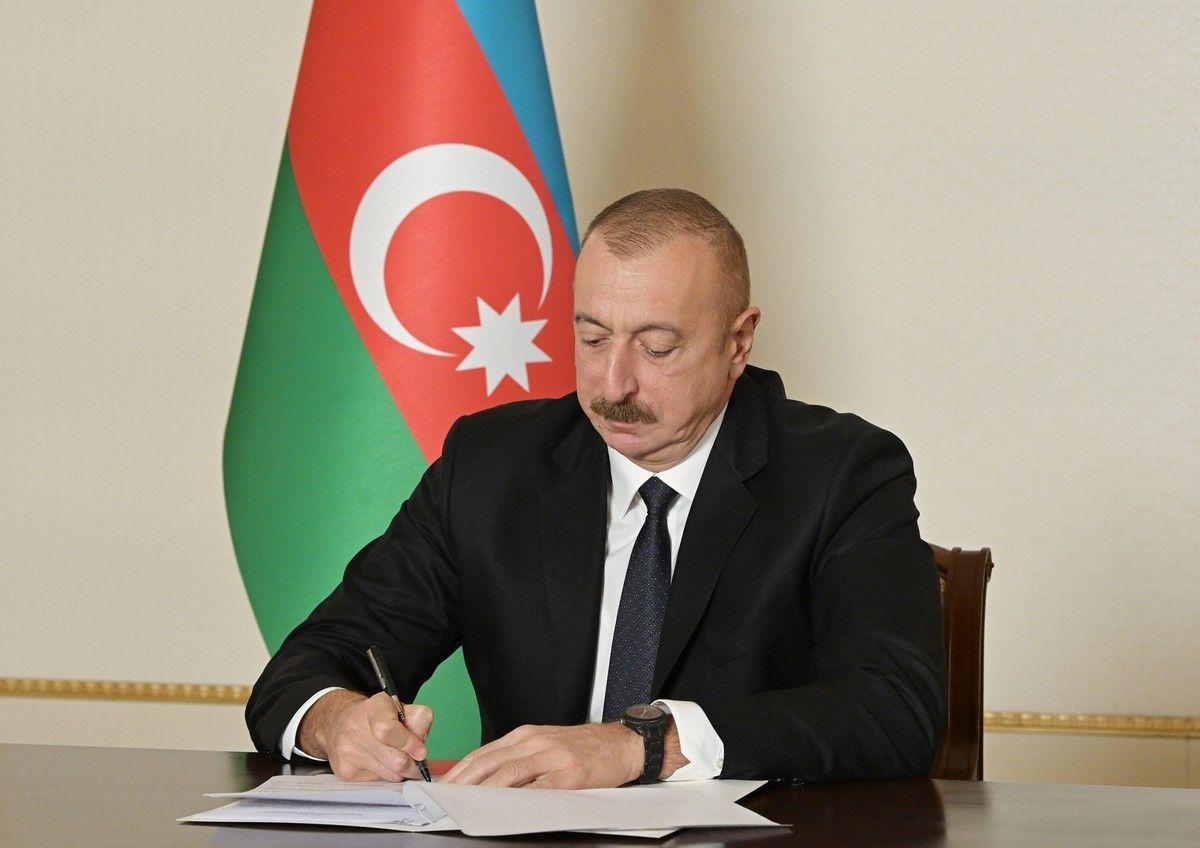Azerbaijan's new Competition Code to tackle monopolies and protect consumer rights Analysis by Caliber.Az
Over the past five years, Azerbaijan has implemented major tax and customs reforms aimed at strengthening the fight against the shadow economy and adopted some administrative measures to curb "grey" production, trade and services. Public procurement has been made transparent, the labour market digitised and new public-private partnership schemes introduced. Stepping up the fight against unfair competition and monopolies is the next step to improving the country's business environment. To this end, President Ilham Aliyev on January 23 signed the bill "On Approving, Implementing and Regulating the Competition Code". The Cabinet of Ministers still has to prepare several by-laws for the code, which will come into force in July this year.
The final version of the draft law "On Approving the Competition Code" submitted to the Milli Majlis was approved by the plenary session of the legislature last December, and the law was approved by the Head of State, on January 16. Consisting of 12 chapters and 84 articles, the long-awaited CC has been developed based on best international practices and defines the legal basis for business activity under conditions of healthy competition. It also aims to improve the business environment and encourage free enterprise. Most importantly, it is intended to be a fundamental document for the protection of consumer rights, which will further improve the quality of products and services.

The document will enter into force on July 1, 2024, and until then, on the instructions of the head of state, the Cabinet of Ministers, in coordination with the structures of the Ministry of Economy, the Central Bank and several other agencies, must prepare legal acts and other regulatory mechanisms and submit them to the President of Azerbaijan for approval. In particular, the Cabinet of Ministers will prepare a draft law defining types of liability for violation of the CC, as well as proposals to improve the activities of the State Service for Antimonopoly Control and Consumer Market Surveillance. There are plans to develop rules for the inspection of market undertakings and natural monopolies, as well as proposals on the establishment of the Competition Commission, its composition, the procedure for the examination of cases and the decision-making process of this body.
The head of state, inter alia, instructed to draw up a list of natural monopolies and to approve the form and procedure for the submission of financial reports on the results of the business activities of these entities. This is of great importance since natural monopolies in Azerbaijan have a de facto position above the market, their activities are very weakly regulated, their financial reporting is "sluggish", and the principles of corporate governance are often perfunctory.
We should note that Article 3 of the new CC defines the "Fundamentals of Azerbaijani Competition Policy" and explicitly states the basic principle of pricing based on market supply and demand. The paragraphs of this article require to ensure free pricing taking into account the interests of consumers and ensuring the right of free choice, the inadmissibility of agreements restricting competition, monopolisation and abuse of dominant position, including the position of natural monopoly. This means that both state and private companies must have free access to the market and equal access to resources, and now these rules will be applied to the activities of natural monopolies as well. To the same end, Azerbaijan will have to define the rules for the conduct of inspections in market entities and natural monopolies by July 1.
Concrete facts show that the era of invulnerability and uncontrollability of state monopoly structures is drawing to a close. For example, in July last year, following numerous complaints from private Internet providers, the State Service for Antimonopoly Supervision and Consumer Market Control imposed financial sanctions on natural monopolies Aztelekom and Baktelecom, increasing tariffs for using state cable and channel infrastructure, node resources, overcharges for renting communication channels, etc.
Moreover, in mid-January, the State Service opened a case against Azerbaijan Railways CJSC, accusing the company of restricting competition in the freight market. According to the complaints of a number of private freight forwarding companies, Azerbaijan Railways and its subsidiaries - ADY Ekspress and ADY Konteyner - have been violating the norms of fair competition for a long time. They have been discriminating against private transport structures and refusing to cooperate with them. According to transport market participants, the investigation of the state service into the activities of Azerbaijan Railways promises a serious breakthrough in rail transit and the liberalisation of this sector. Undoubtedly, control over the activities of state monopolies will intensify after the CC takes effect in the middle of this year.
Significant progress in improving market conditions for private enterprises is also expected in other sectors. In particular, the Cabinet of Ministers, with the participation of the CBA (Central Bank of Azerbaijan), has been instructed to develop conditions for determining the dominant position of financial institutions (criteria for determining the limit and market share) and to adopt rules for assessing the objective necessity of a high market share and the efficiency of financial institutions in the case of abuse of a dominant position in the market. It is expected that this step will allow many medium and small commercial banks and insurance companies in the country to participate more in operations with public finances. This may increase their share in ensuring tender procedures, payment of pensions, allowances, salaries etc.
The new CC establishes liability for competition law infringements: under the law, the Competition Authority will impose a fine of up to 5% of the total turnover of the entity in the financial year preceding the year of the decision on the entity that has committed infringements involving a relatively high market share. In order to optimise these procedures, a Competition Commission will be established in the country.
The Cabinet of Ministers has been instructed to approve the rules for the establishment and composition of the Competition Commission and to redefine the procedure for its consideration of cases and decision-making. The procedure for determining the level of market concentration and assessing concentration in the relevant market segment will also be approved by the Cabinet of Ministers. For its part, the Cabinet of Ministers is expected to prepare a draft law defining the types of liability for violating the Competition Act, as well as to update the legal acts concerning the criteria for agreements (cartels) that may lead to restricting competition. In addition, the government has one month to come up with suggestions on how to improve the activities of the State Agency on Antimonopoly Regulation and Consumer Market Supervision.

"The entry into force of the Competition Code and the amendments to the legislation is an extremely important step in terms of the growth of Azerbaijan's economy, increasing the transparency of the business environment and the development of free entrepreneurship; it will create a legal basis for the activities of domestic entrepreneurs in conditions of healthy competition," Vugar Bayramov, a member of the Milli Majlis Committee on Economic Policy, Industry and Entrepreneurship, wrote on his Facebook account. According to him, the new code is aimed not only at fighting monopolies but also at protecting consumers' rights and further improving the quality of products and services.
The code will also play an important role in the liberalisation of import and export operations, which will increase the access of SMEs to global markets. The latter is very relevant for Azerbaijan, where the media and public organisations have been highlighting the problem of sectoral monopolies in foreign trade for many years: in particular, imports of cars, smartphones, computer equipment, branded clothing, tropical fruits, etc.
The adoption of the CC and the strengthening of the fight against unfair competition will play an equally important role in the sphere of regional trade and attracting international investment. At present, the member countries of the Organisation of Turkic States (OTS) intend to jointly fight the manifestations of market monopolisation, and the first meeting of the Competition Council under the OTS was recently held in Istanbul. The meeting agreed on the main principles of the Council's activities, adopted a roadmap and decided to hold the next meeting of the Council in the Azerbaijani city of Shusha.








